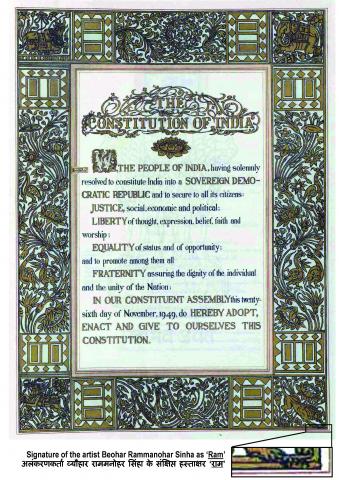
Types of law in India
India is a democratic country we live in a nice environment. We have to do different type activities. Some are bad, some are good.
In other words we live in a society where both good are and bad we make a lots of mistake without wanting and we get caught in mistakes. Sometimes we fall prey to evils despite being right, and sometimes it happens that some people bother us even if they don’t want, we tortured. Some people harass us physically, mentally and financially. In some cases we get caught in fight to regulate the activities of human nature a group of set activities are introduced by regulatory controlling.
So that no one can harm the other one this rules is called of law. Our government has made many laws for us. By accepting these laws we can get fair justice without any fear.
Many laws were made in India. As of January 2017, there were about 1,248 laws.
Some brief of Indian Laws
- History
Under the legal history, the origin of legal is studied in its gradual development and study the changes in the time sequence. Legal history closely related to the development of civilization. It is the part of social history.
- Constitution and administrative law
The Constitution of India, which came into effect on 26 January 1950 is the lengthiest written constitution in the world. Its administrative provisions are to a large extent based on the Government of India Act 1935. Administrative law provides details the administration of both the Union and the States, and codifies the relations between the Federal Government and the State Governments. It is related to rule of law through this knowledge of the rights and duties of officers. Collection of administrative law such rules who regulates the responsibility of the part of administrative officers toward the citizens and the rules of their action. - Criminal law
Indian criminal laws are divided into three major acts Indian Panel Code, Code of Criminal Procedure, Indian Evidence Act. The Code of Criminal Procedure, 1973 governs the procedural aspects of the criminal law. Besides these major acts, special Criminal Laws are also passed by the Indian Parliament i.e. NDPS, Prevention of Corruption Act, Food Adulteration Act, Dowry Prevention Act, the Defense of India Act, etc. thousands of minor laws are made in India. - Contract law (1872 Act)
This act was passed during the British rule in India. The main contract law in India is codified in the Indian Contract Act, which came into effect on 1 September 1872 and extends to all India. It governs entrance into contract, and effects of breach of contract. Indian Contract law is popularly known as mercantile law of India. It is based on English law. This act deals with constitution’s execution and general principles and pronunciation. The guarantees refer to the constitution like bail and mortgage agency.
- Labour law
Indian labour law refers to laws regulating labour in India. India's labour laws underwent a major update in the Industrial Disputes Act of 1947. Labour law meditates the relationship between worker employing entities, trade unions and government collective. Labour law related to the tripartite relationship between employee, employer and union.
- Company law
The companies act is the most important legislation empowers the central government to form a company. It was passed by the parliament of India in 1956. This act was done to register for formation of the company.
- Tort law
Tort law in India is a relatively new common law development supplemented by codifying statutes including statutes governing damages. It is concerns the compensation for harm to people rights to health and safety a clean environment property. Their economic interest and their reputations.
- Property law
The Transfer of Property Act 1882 is an Indian legislation which regulates the transfer of property in India. According to the Act, 'transfer of property' means an act by which a person conveys the property to one or more persons, or himself and one or more other persons. Property is broadly classified into the following categories Immovable Property (excluding standing timber, growing crops, and grass) and Movable Property.
- Tax law
Indian tax law involves several different taxes levied by different governments. The Income-tax Act, 1961 is the changing Statute of Income Tax in India. It provides for levy, administration, collection and recovery of Income Tax. The Government of India brought a draft statute called the "Direct Taxes Code" intended to replace the Income Tax Act, 1961 and the Wealth Tax Act, 1957. Under India Tax Law Central Board of Direct Taxes, Income Tax Act of 1961, Goods and Services Tax.
- Trust law
According to India act 1882 the property can also be looked after by the trust. Under this act the trust has legal ownership of the trust property trust money. This is done only for the benefit of the beneficiary. It has a legal obligation. Indian law does not recognize "double ownership", and a beneficiary of trust property is not the equitable owner of the property in Indian law.
- Family law (personal law)
It is defined as a law that applies to certain class or group of people based on the religious, faith and culture. In Indian everyone belongs to different caste religion and have their own faith and belief. Their belief is decided by the sets of law. Hindu Law, Muslim law, Sunni Law, Christian Law.
- Nationality law
According to the nationality act 1955” No Indian diaspora can get citizenship of India. Government through amendment of the law. It has been decided to give citizenship of India to minority. Overseas citizens of India have no form of political rights or participation in the government, however, and there are no plans to issue to overseas citizens any form of Indian passport.
Thus we can use of all laws and decided to rights of our life.
